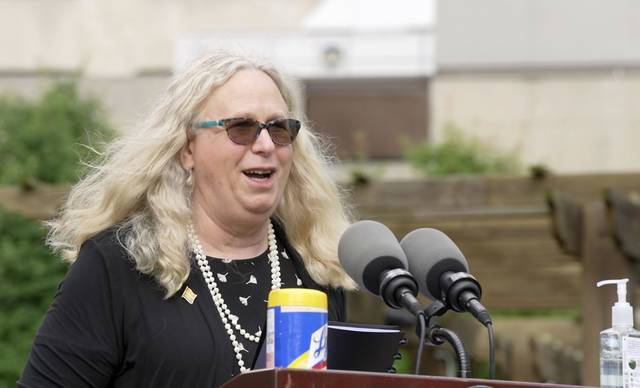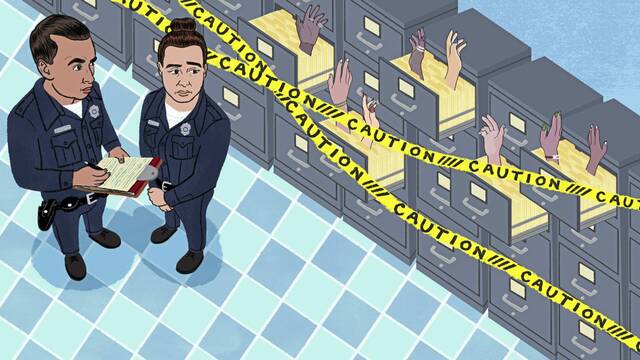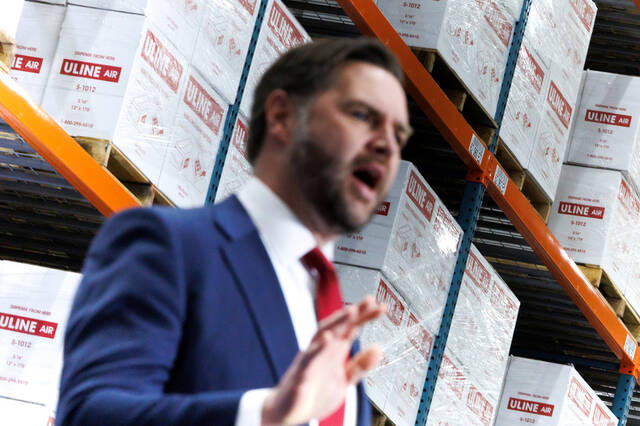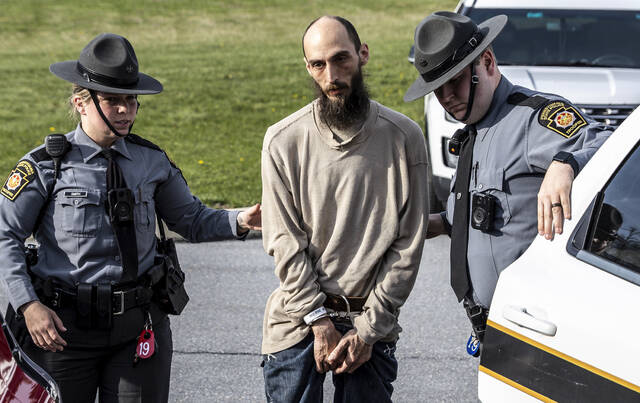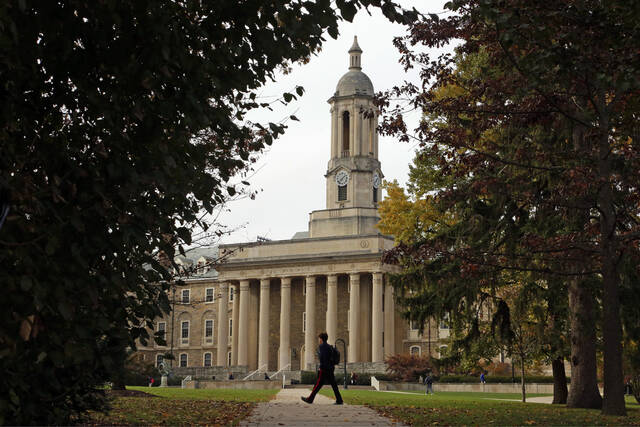New orders from Pennsylvania’s Secretary of Health expand on an April order mandating masks be worn in public, extending the conditions under which one must be worn to include indoors when with anyone outside their household.
The orders, which also give further guidance to hospitals and colleges, are meant to curb rapidly increasing cases of covid-19 and resulting hospitalizations.
Pennsylvania Secretary of Health Dr. Rachel Levine, citing projections from the Institute for Health Metrics and Evaluations, said the state could see its intensive care units overwhelmed by next month.
As of Tuesday, nearly 2,600 covid-19 patients were hospitalized across the state, and 558 were in intensive care, Levine said. That is nearly 50 more ICU covid patients than Monday.
She said it is up to Pennsylvanians how bad the covid-19 crisis gets in the state.
“How Pennsylvania does in terms of this pandemic and whether we follow the IHME projections or don’t is going to come down to the actions of every single Pennsylvanian,” she said.
According to state data, about 318 covid-19 patients are hospitalized in Allegheny County hospitals, and 111 were in intensive care. Around 44 were on ventilators.
County health Director Dr. Debra Bogen issued a dire warning last week regarding the rising case count in Allegheny County, though issued no new mitigation orders. A county spokeswoman said the state’s new orders and the potential for new county orders will be addressed at the county’s weekly covid press conference Wednesday.
The state orders require anyone coming to Pennsylvania from another state to either quarantine upon arrival or receive a negative covid-19 test within 72 hours of coming to the state. The same goes for Pennsylvanians leaving the state and returning. The order does not apply to those who commute across state lines for work or medical treatment.
That doesn’t mean that travelers will be stopped as they disembark airplanes or drive across state lines, she said, noting that other states have similar orders in place.
What it comes down to, she said, is that residents should not travel.
“We really want people to stay home and stay within their household,” she said.
Pittsburgh-based infectious disease expert Dr. Amesh Adalja said the simple steps of not traveling and wearing a mask really can make a difference.
“Increasingly, as epidemiology indicates relatively small gatherings in people’s homes are driving cases, the best public health can do is plead with people to take commonsense actions to limit the spread of the virus and reduce its damage,” he said.
He conceded that the orders are not necessarily enforceable but said they should act as a wake-up call to people.
“It signals to the public that they must begin to behave as if we’re in a pandemic,” he said.
Levine recommended that colleges and universities lay out a testing plan for when students return to campus after the holidays and secure enough space for isolation and quarantining. She said institutions should have routine testing throughout each term, including at the beginning of each semester and when students return from a break.
Levine did not impose any new restrictions on restaurants, which can remain open at 50% capacity. Still, many restaurant owners remained anxious Tuesday.
“I think it would be safe to say that restaurants are scared and they’re nervous, but also, I think it’s important that all of the regular citizens of Pennsylvania wear their masks and be compliant because if they don’t, we’re going to be the ones shut down because of it,” said Melissa Bova, vice president of government affairs at the Pennsylvania Restaurant and Lodging Association. “I think that’s the important part of her message today. We’re not the problem, private gatherings are the problem and if people aren’t more responsible, they’re going to mitigate us to try to control it whether we are the problem or not.”
Greg Cammerata, owner of IronRock Tap House in Hempfield, agreed.
“Restaurants have been open through all of this so they’re really not the thing that has changed,” he said. “The thing that has changed is it’s a different time of year and all the kids went back to school so it would be a shame to punish restaurants for things that most likely aren’t originating from them.”
Levine said hospitals need to prepare now for a continued surge as winter goes on, and she said they need to plan now for how they will support one another should some become overwhelmed with patients.
She asked hospitals to carefully consider planned elective surgeries and urged physicians to move up necessary surgeries and prepare to halt nonessential elective surgeries if the health care system becomes strained.
Dan Laurent, a spokesman for Allegheny Health Network, said the health care system has been anticipating and preparing for a fall surge in covid-19 cases.
“(We) have been actively engaged in both our own surge preparations as well as the broader community’s through our close collaborations with (other hospitals) and local health departments,” he said.
He said in regard to elective surgeries, AHN is continuing on “in a very careful and prudent fashion,” and they’re prepared to adjust as the pandemic evolves.
Staff writers Teghan Simonton and Megan Tomasic contributed


